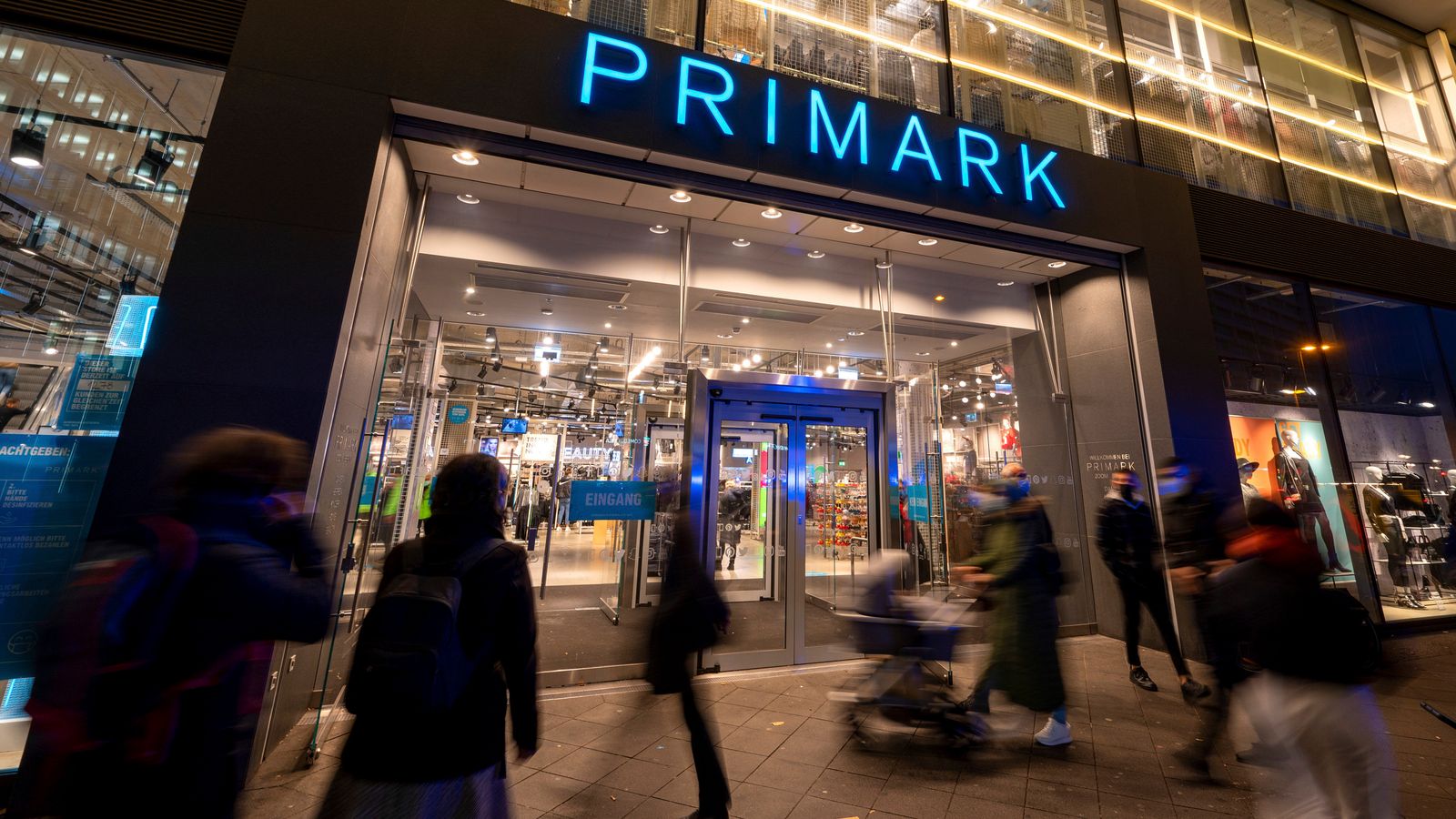Higher Primark prices have been credited with bolstering sales growth at the retailer, allowing its parent firm to raise its annual profit forecasts.
Associated British Foods (ABF) said the fashion business was boosted by warm weather in the UK and abroad during the 12 weeks to 27 May, with the UK arm outperforming.
Primark reported a 13% jump in sales to £2bn, with health and beauty products in high demand along with summer fashion.
Like-for-like sales, a measure which strips out the effects of new store openings, were up 7% on the same period last year.
AB Foods, which also owns major sugar, grocery, agriculture and ingredients businesses, said it now expected full-year adjusted operating profit to be “moderately ahead” of the £1.435bn made in 2021/22.
Be the first to get Breaking News
Install the Sky News app for free
That was up from an earlier forecast that was broadly in line with the previous year.
The group said sales in its grocery arm, which includes Twinings tea, Jordans cereals and Ovaltine drinks, rose 13% to just over £1bn over the three months.
That was driven by price rises implemented earlier in the year to offset input cost increases.
It was the latest consumer-facing business to report resilient trading in the face of the evolving cost of living crisis, with the government moving to ensure prices are fair as stubborn inflation threatens the economy.
Primark rival Next raised its own sales and profit guidance just last week, telling investors that trading had exceeded expectations on the back of warmer weather and consumers’ wage increases.
ABF finance chief Eoin Tonge told the Reuters news agency: “The doom and gloom (commentary) has been around now for almost 12 months and the consumer continues to outperform the doom and gloom.
Please use Chrome browser for a more accessible video player
“Most of our markets kicked in when the sun started to shine,” he added.
It is not the kind of trading update the Bank of England and government will want to see given efforts to curb inflation.
It is hoped that interest rate hikes, forcing up borrowing costs such as mortgages, will quell demand and therefore stubborn price hikes in the economy.
The Competition and Markets Authority (CMA) is already investigating the grocery and fuel sectors to check whether prices fairly reflect the easing in wholesale costs witnessed since the spikes caused by Russia’s war in Ukraine early last year.
The governor of the Bank of England, Andrew Bailey, has previously accused elements of the food supply chain of rebuilding their margins.
Retail, and other sectors, argue some cost pressures remain across the supply chain including over availability, energy and wages.










